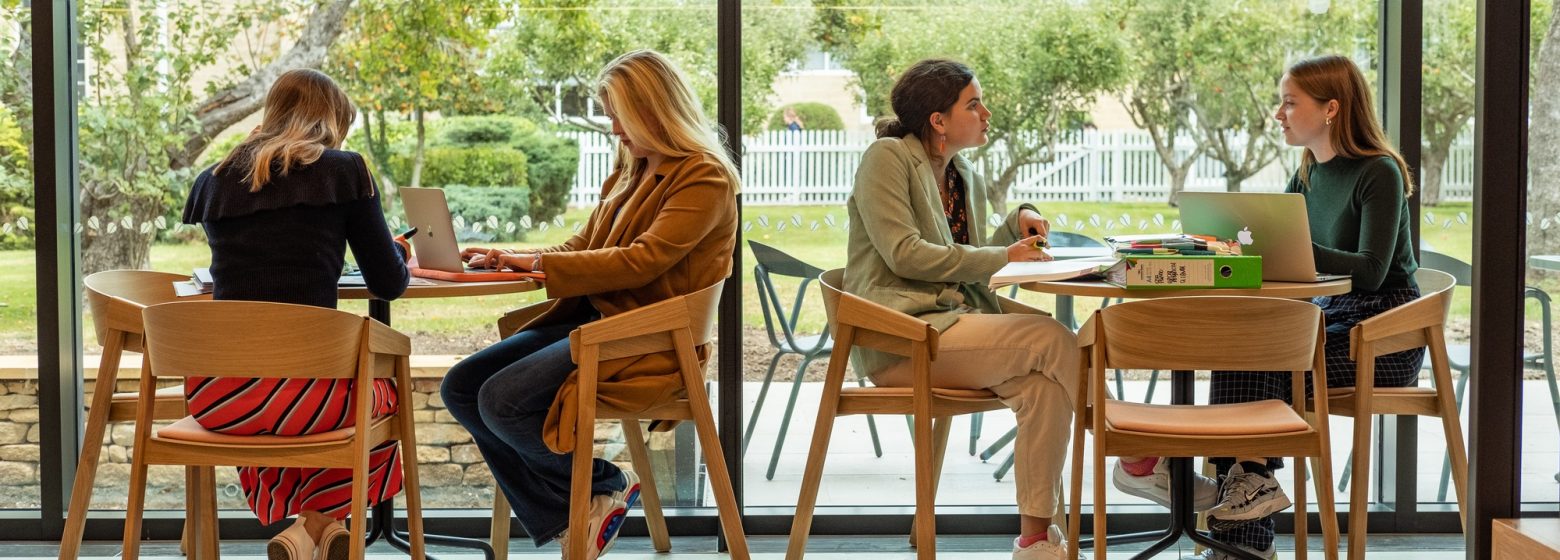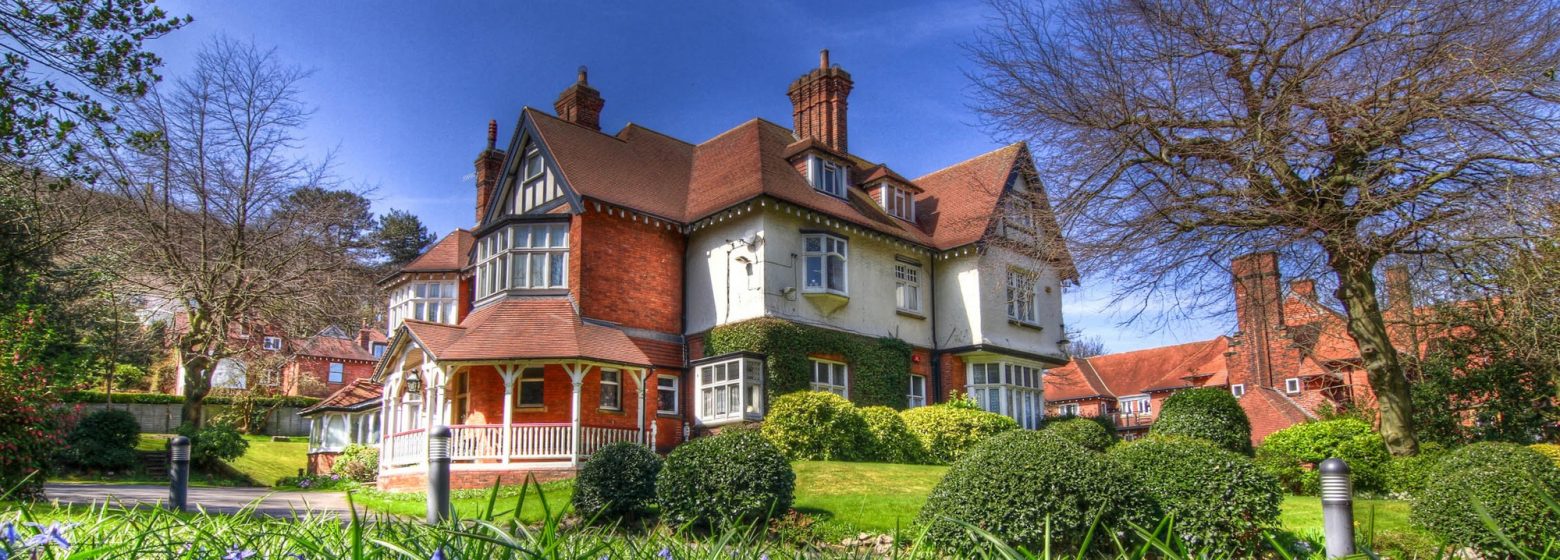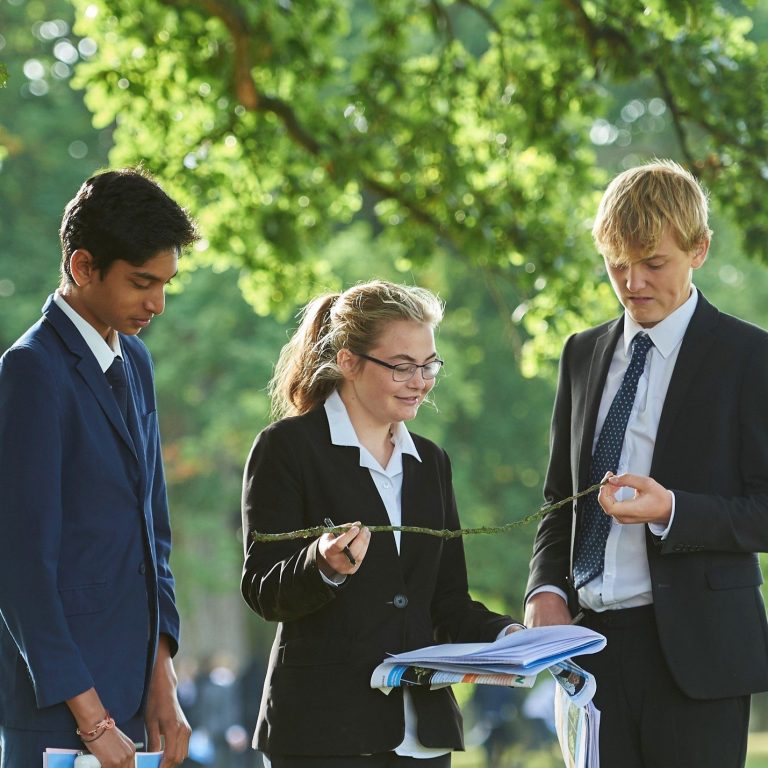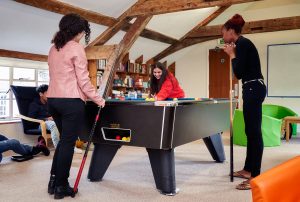A home away from home
Schools work hard to make the transition from home to school as smooth as possible. A seven year old is likely to find themself sharing a large bedroom with about half a dozen other youngsters, but their own private space, with a wardrobe and locker and sometimes a built-in desk. The combination of private space – and inspectors are very keen to see this personalised and reflecting the individual – and company is important for helping children build friendships which may last a lifetime.
This companionship, coupled with a busy life inside and outside the classroom, and easy contact with parents, helps a child to weather the early days of missing home and begin to enjoy all that school life has to offer. Ask any boarder the best thing about boarding, and they are likely to say, ‘Being with friends,’ whatever their parents may think about academic excellence.
The international nature of boarding, with pupils coming from all over the world to take advantage of all that UK boarding has to offer, is another bonus. Children learn to understand different peoples and cultures by making friends and living in a thriving community based on mutual respect. This is an excellent preparation for the increasingly international adult world.
Older children are likely to find the numbers in their bedrooms diminish, with perhaps two or three sharing up to the age of 16, and single study bedrooms – sometimes with en-suite facilities – rapidly becoming the norm for sixth form students preparing for university.
Older students have established their friendships and are therefore more likely to spend more time studying: there may be fewer people in the room, but the desks will be larger, the shelves fuller.
Sixth form boarding is increasingly popular. Parents are happy their child is less dependent on home and family for a couple of years before the complete freedom of university. They are also pleased someone will be on duty to check they don’t work on their art project all night, at the expense of tomorrow’s lessons, without getting into an argument with mum or dad. Young people enjoy the ‘half-way house’ between home and university too – they feel more independent, but good meals appear at regular intervals, and their room is not allowed to degenerate into quite the awful state common in student accommodation.
At all ages of boarding, schools offer comfortable, pleasant accommodation, with single study bedrooms frequently larger than those at university. Communal areas such as common rooms and, for older pupils, kitchens, are well equipped and have the advantage of staff supervision, ensuring students learn to respect other users and the facilities at their disposal.
All of this will be overseen by friendly, professional, committed and dedicated staff, for whom the happiness of the boarding house depends upon the happiness of individual boarders and the strength of the relationships they build with each other. Often, house staff become the most significant people in a child’s boarding life – whatever the age of the child – and they take that privilege very seriously indeed.
What is boarding like?
Homework for younger pupils will be supervised and therefore orderly, but with help available if needed. Well-equipped school libraries are valuable in the evenings or at weekends, reminding pupils of the value of real books.
Computer-use is likely to be carefully monitored for the safety of pupils, for obvious reasons and schools are happy to discuss this with parents.
Clubs and activities offer opportunities beyond the academic day to discover and nurture talents, to explore occupations which may be life changing. One young woman who went on to represent England as a rower, recalls of her early days at boarding school: “I’ll never forget the day someone said, ‘Does anyone fancy rowing?’. I’d never thought of it before, but I said yes, and it changed my life.”
The extended day gives boarders time and the chance to try something different, or pursue an established interest. School plays and musicals need directors, stage managers and lighting technicians as well as actors. Many a serious musician, with hours in the music practice rooms to hone their skills, has found time at boarding school to get together with like-minded souls and start a rock band.
Sport plays a major part in the lives of many boarding schools, with whole afternoons for practice and frequent inter-house or inter-school matches. Many of Olympians were able to find the time for excellence because they were boarders. Not having to run for the bus in their teens may have given them the time to be good enough eventually to represent their country.









